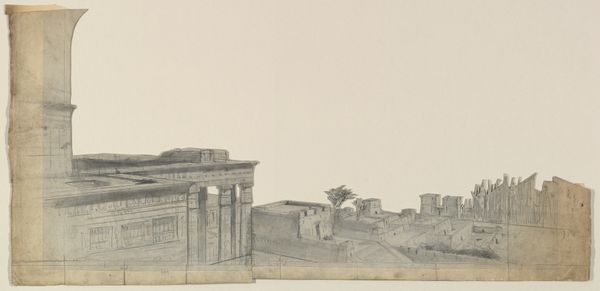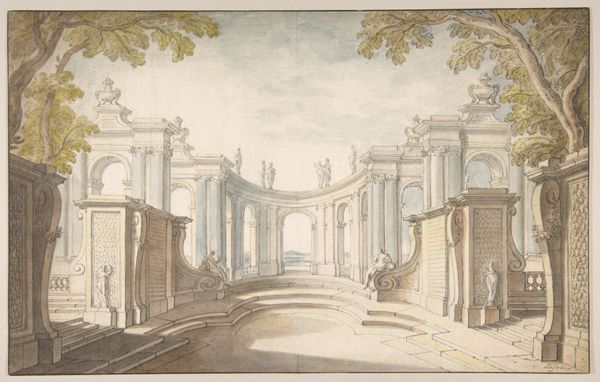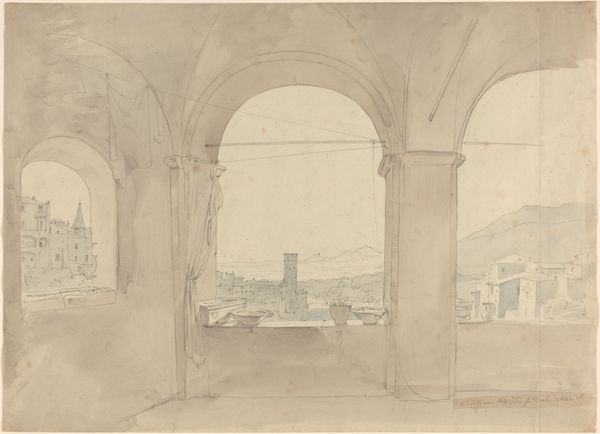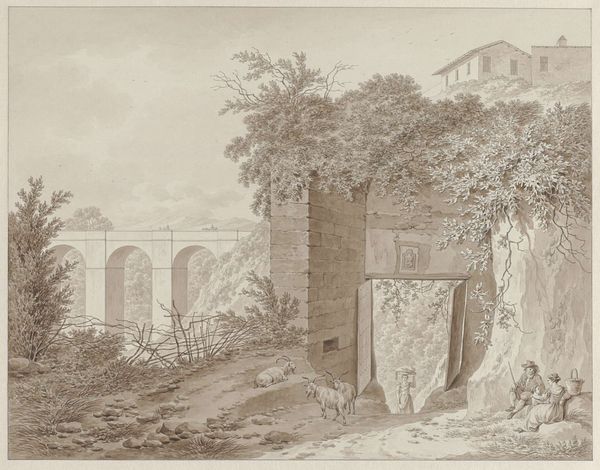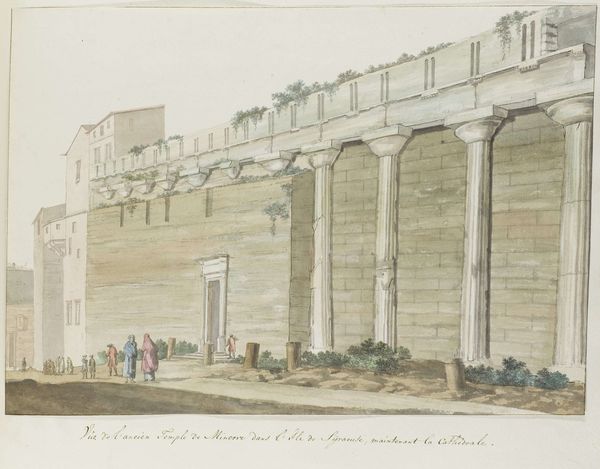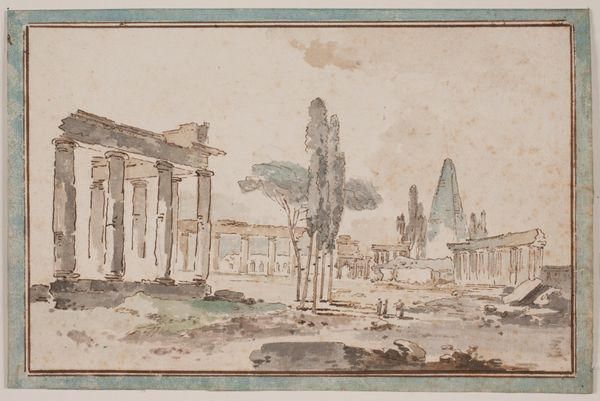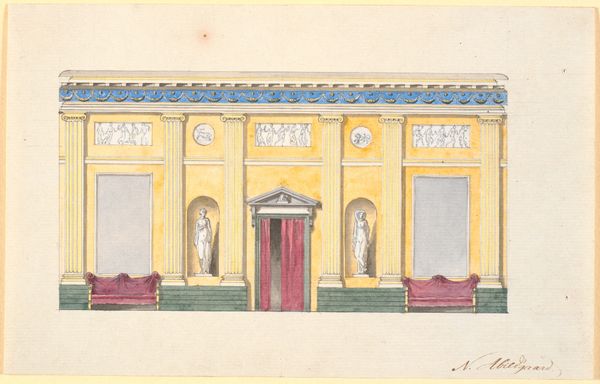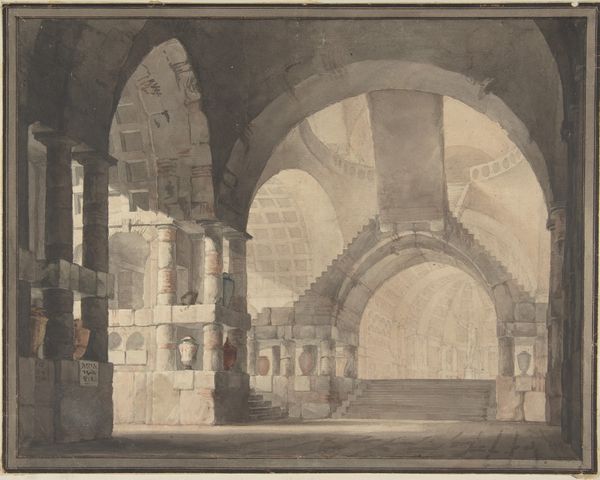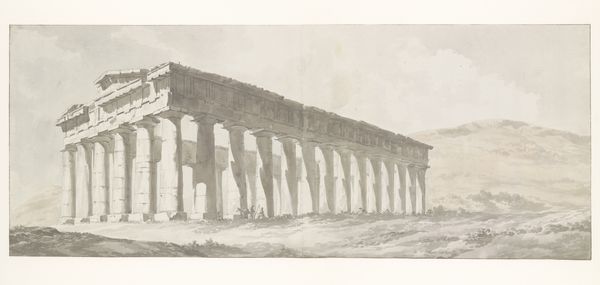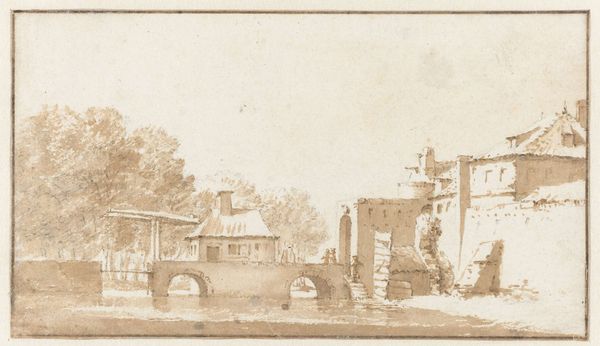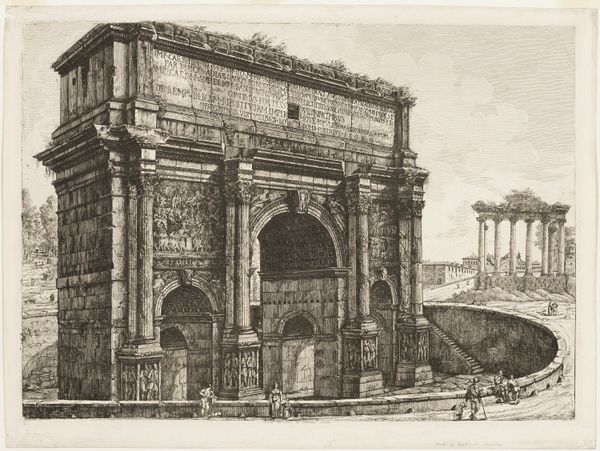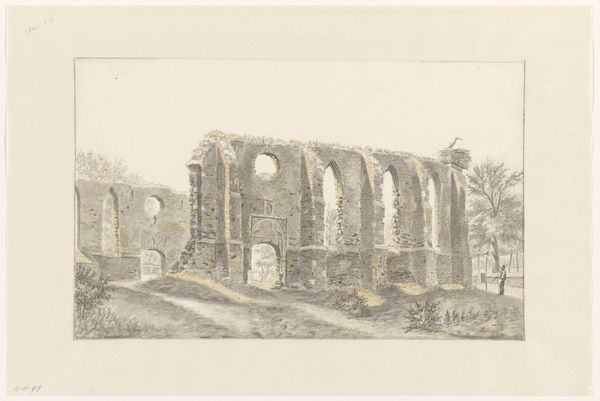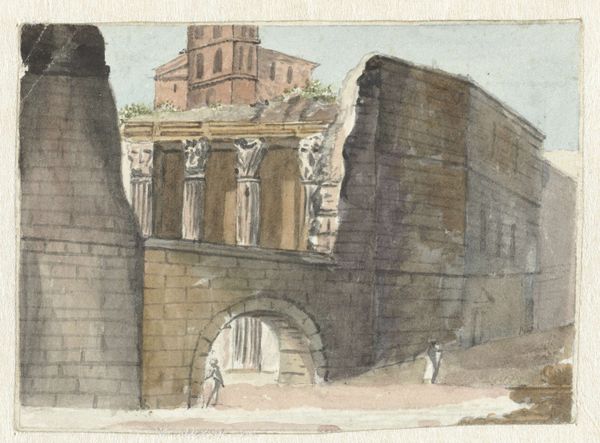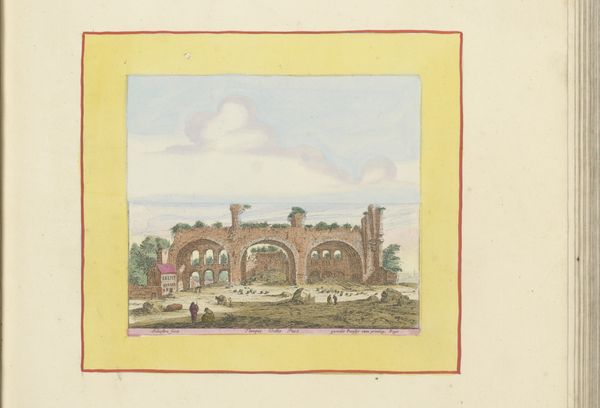
painting, watercolor
#
neoclacissism
#
painting
#
landscape
#
classical-realism
#
watercolor
#
watercolour illustration
#
history-painting
#
watercolor
Dimensions: height 223 mm, width 693 mm
Copyright: Rijks Museum: Open Domain
Curator: Louis Ducros's 1778 watercolor, "View of Roman Barracks and Colonnade in Pompeii," captures a fascinating moment of rediscovery. Editor: There’s an immediate sense of melancholy here. The muted tones of the watercolor lend a ghostly air to the architectural ruins. It’s as if we’re peering into a sepia-toned memory. Curator: Precisely. Ducros wasn't simply depicting a scene; he was documenting a revived past, breathing life back into these classical ruins for his 18th-century audience. The colonnade serves as more than a structural element; it acts as a threshold, a portal into another world. Editor: A world abruptly frozen by disaster, brought to light again through layers of ash and soil. These people seem to be modern travelers though—visitors looking at that past through a very specific lens. Curator: And there’s intention there, isn’t there? Notice how Ducros frames the figures within the colonnade's structure. They're neatly compartmentalized within the architectural order of Pompeii. Editor: Right. It’s this delicate balance of order and decay. I wonder how much of it plays into that renewed interest in Neoclassicism? It's not just an aesthetic preference; it’s almost a political one. To reclaim these idealized visions of civic life amidst growing social upheaval... Curator: It speaks volumes, doesn't it? And even though the composition is very controlled, the washes of watercolor soften the harsh realities of the archaeological site. These symbols invite viewers to reflect on concepts of history, collective memory, and the cyclical nature of civilizations. Editor: There is this strong element of preservation that seems relevant even today: how we interpret, reclaim, and adapt these spaces, and whose stories get told—it's very clear this isn’t Pompeii through the eyes of Pompeii’s original citizens. Curator: So true. Even now, considering these silent stones and faded hues, one can feel the weight of eras overlapping in such a fragile balance. Editor: It’s quite incredible how this quiet watercolor captures that complexity—prompting reflection on both what's lost and what we choose to remember.
Comments
No comments
Be the first to comment and join the conversation on the ultimate creative platform.
